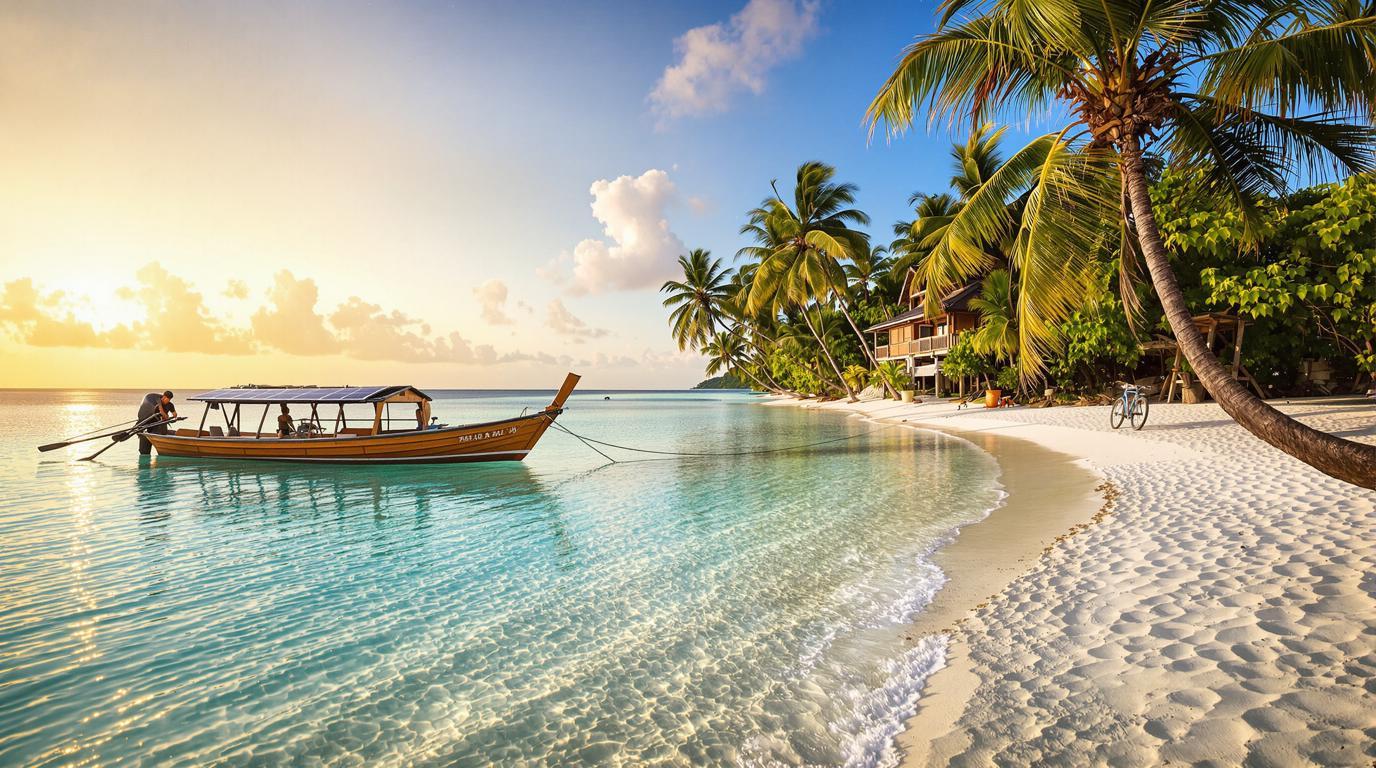A peculiar hush falls over Koh Mak as the speedboat engine cuts—no pulsing beach clubs, no touts hawking tours, just the gentle lap of crystalline waters against powder-soft shores. This 16-square-kilometer sanctuary in Thailand’s eastern Gulf represents a revolutionary approach to tourism in a country often synonymous with overdevelopment. Here, where just five families maintain ownership and strictly limit construction to 30% of available land, travelers discover Thailand’s refreshing alternative to overcrowded hotspots.
Thailand’s best-kept secret hides in plain sight
Positioned just 40 kilometers from Thailand’s Trat province and a mere 20 kilometers south of bustling Koh Chang, Koh Mak exists in splendid isolation. Unlike its larger, more commercial neighbors, this island paradise maintains an intentional equilibrium between visitor accessibility and environmental preservation.
“We’ve watched what happened to places like Phuket and Koh Phi Phi,” explains a resort owner whose family has lived on Koh Mak for generations. “Our families made a collective decision: we would share our paradise, but never surrender it to mass tourism.”
Two pristine beaches that remain wonderfully uncrowded
Ao Kao and Ao Suan Yai beaches stretch along opposite coasts, offering distinctly different but equally mesmerizing experiences. The former curves gently with shallow, child-friendly waters, while the latter presents dramatic sunrise vistas over distant islands. Unlike some destinations best viewed at golden hour, Koh Mak’s beaches remain stunning throughout the day.
An island where bicycles replace tour buses
With limited motorized traffic, most exploration happens on two wheels. Rented bicycles and scooters carry visitors along the island’s palm-lined paths, revealing hidden coves and viewpoints inaccessible to larger vehicles. This transportation approach maintains the island’s serene atmosphere while reducing environmental impact.
Marine parks that rival the Galapagos for biodiversity
The surrounding waters form part of a protected marine park where vibrant coral gardens host kaleidoscopic fish populations. Unlike the Galapagos with its evolutionary marvels, Koh Mak’s underwater treasures remain accessible to casual snorkelers, no scientific background required.
Family-owned accommodations that redefine hospitality
Forget anonymous hotel chains. From the luxury bungalows at Seavana Resort to the budget-friendly Island Huts at 400 baht per night, accommodations maintain intimate connections with their owners. Guests often dine with proprietors, gaining insights unavailable in guidebooks.
A sustainable model that challenges Thailand’s tourism paradigm
“What makes Koh Mak special isn’t just what we’ve built, but what we’ve refused to build,” notes a local tour guide. Unlike Turkey’s famed Pamukkale with its ancient columns, Koh Mak’s greatest attractions remain its untouched landscapes.
The island’s development restrictions—unusual in Thailand’s tourism industry—create a template for sustainable growth that balances economic benefit with environmental protection.
A community united by preservation, not profit
Unlike many private islands worldwide, Koh Mak’s five controlling families prioritize conservation over commercialization. This commitment extends beyond environmental concerns to cultural preservation, with traditional fishing practices and coconut farming continuing alongside tourism.
Activities that connect rather than consume
From kayaking to secluded Turtle Beach to cycling through verdant coconut groves, activities on Koh Mak engage visitors with the environment without depleting it. Local cooking classes and Muay Thai training provide cultural immersion beyond superficial tourist experiences.
The golden temple that isn’t
While Kyoto boasts its famous golden pavilion, Koh Mak’s modest Wat Koh Mak offers something equally valuable: authentic spiritual experience without crowds. Here, monks continue centuries-old traditions in peaceful seclusion.
Koh Mak doesn’t merely offer an escape from Thailand’s tourist traps—it presents an alternative vision for what Thai tourism could become. By maintaining local ownership, limiting development, and prioritizing sustainability, this tiny island has created a model that preserves paradise rather than exploiting it. For travelers seeking Thailand’s authentic heart rather than its commercial façade, Koh Mak doesn’t just satisfy—it transforms expectations of what a tropical getaway can and should be.
